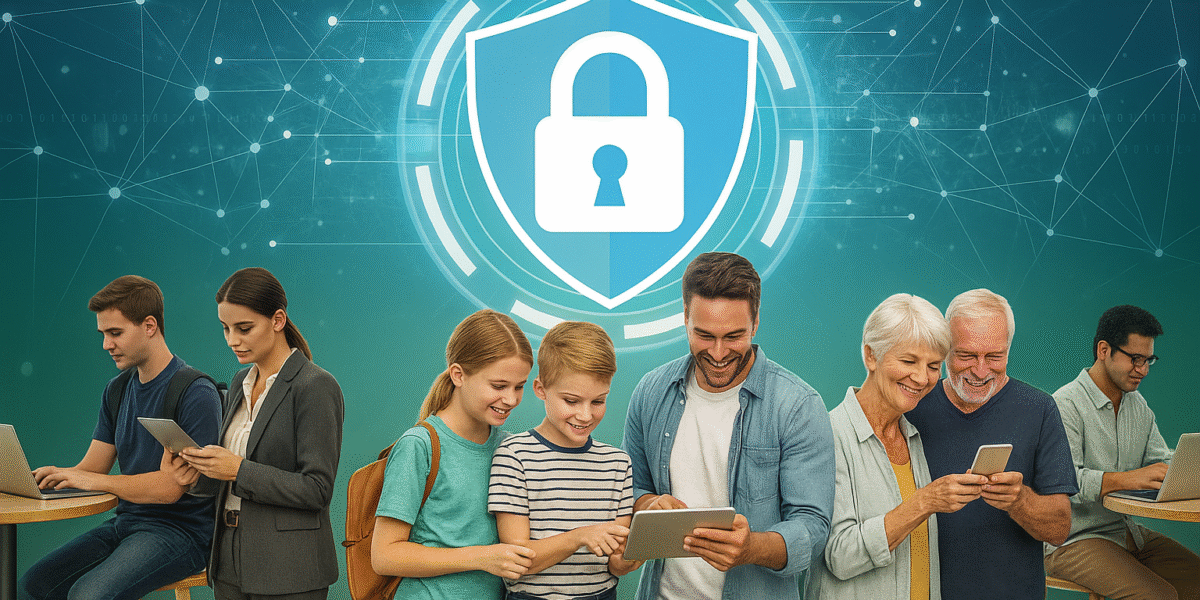When most people hear the word cybersecurity, they picture IT teams surrounded by blinking servers, writing lines of code to stop hackers. It feels like a world reserved for “tech people.” The truth is very different. Every single one of us, whether we work in finance, education, retail, or even just browse the web at home, is part of the cybersecurity story.
Think about your daily routine. You log in to your email, check your bank balance, maybe order food online, or scroll through social media. Each one of those actions leaves a digital trace, and each one is an opportunity for someone with bad intentions to take advantage. That’s why cybersecurity is no longer a niche subject. It’s everyday safety.
Why It Matters to Everyone
The risks we face online are often simple mistakes waiting to happen. A message that looks like it’s from your bank might actually be a phishing scam. A password you reused for years could be the reason someone gains access to your personal data. Even something as harmless as joining a public Wi-Fi network at a café could expose your private information to strangers.
The consequences are not abstract. They can be personal and painful. Losing money from a hacked account, having your identity stolen, or even dealing with the embarrassment of your private details being leaked are problems no one wants. And yet, these things happen every day, not just to businesses, but to individuals like you and me.
It’s About Habits, Not Tech Skills
Here’s the good news: staying safe online doesn’t require you to be “tech-savvy.” You don’t need to understand firewalls or encryption. What really matters are habits.
Think of how you protect yourself in the physical world. You lock your doors at night. You wear a seatbelt when you drive. You check who’s knocking before opening the door. None of these require special training, but they dramatically reduce your risks. Cybersecurity works in the same way. Small, consistent actions create a strong layer of protection.
Quick Safety Checklist
✅ Use strong, unique passwords (try a password manager)
✅ Turn on two-factor authentication wherever possible
✅ Pause before clicking links in emails or messages
✅ Keep your phone and computer updated
✅ Share less personal information online
Start with just one of these today. Small changes stack up over time.
Practical Habits You Can Start Today
You don’t need to overhaul your life to improve your security. Start small, and build up from there:
- Use strong, unique passwords. If one account is hacked, you don’t want the same key unlocking everything. Password managers can make this simple.
- Turn on two-factor authentication. That extra step, a code on your phone or app, can block someone even if they know your password.
- Be cautious with emails and links. If something feels odd, don’t click. Double-check with the sender if you’re unsure.
- Keep your software updated. Updates aren’t just about new features; they often fix security holes.
- Think twice before sharing personal details online. Oversharing gives attackers clues they can use against you.
These are straightforward actions, but they create a powerful shield when practiced consistently.
A Shared Responsibility
Cybersecurity isn’t about being paranoid. It’s about being prepared. Just like physical safety, digital safety depends on awareness and small, steady habits.
At Cyber Dilmeth, our mission is to make this journey simple. We believe that with the right guidance, anyone can protect their money, privacy, and identity without needing to be a tech expert. Staying safe online doesn’t start with complicated tools, it starts with you.
So, take one step today. Change a password. Turn on two-factor authentication. Question the next suspicious email before clicking. Each choice makes a difference, and together, those choices make you safer.


